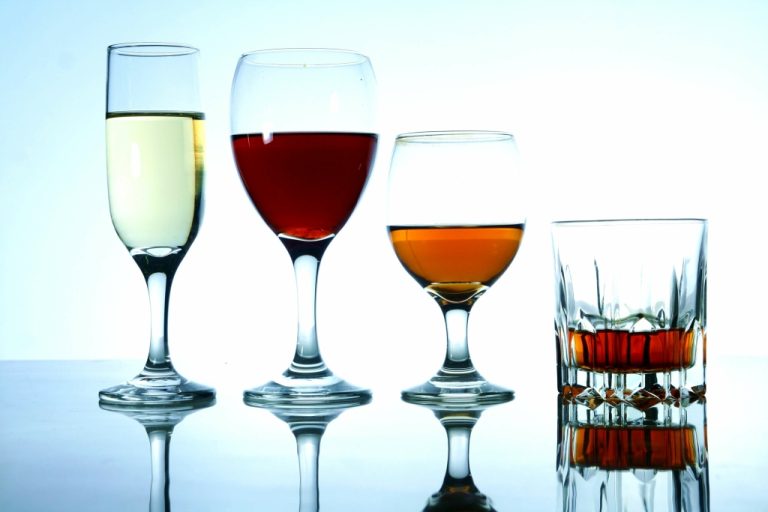How To Tell When Alcohol Is Affecting Your Relationships
How to Calculate Common Stock Outstanding From a Balance Sheet The Motley Fool
Haziran 29, 2022How Long Does Weed Stay in Your System Fully Explained
Eylül 7, 2022It’s never too early to reflect on your relationship with alcohol or seek outside guidance. Alcohol can have significant negative effects on relationships, including communication breakdowns, conflicts, trust issues, and emotional disconnection. Interventions, when conducted in a supportive and caring manner, can be a powerful tool in addressing alcohol abuse. Involve trusted family members or friends alcoholism to facilitate a structured conversation that encourages the person struggling with alcohol abuse to seek help and make positive changes. According to the study, women who had partners that drank more experienced more intimacy but more conflict in their relationships, while men who drank at higher levels had more distrust of their partners. But this study was limited to couples in sub-Saharan Africa, and more research is needed.
How does alcohol impact romantic relationships over time?

Prioritize your mental and physical health through regular exercise, proper nutrition, and consistent sleep. Seek emotional support from friends or professional counseling services to strengthen your resilience. Severe AUD is essentially addiction—a chronic disease involving changes in brain chemistry. People struggling with an AUD continue drinking despite experiencing negative consequences, such as health issues, relationship problems, or legal troubles. Further supporting this connection, the Bureau of Justice Statistics notes that a substantial number of spousal violence victims report that their aggressor had been drinking prior to the incident. This suggests that alcohol may act as a disinhibitor, potentially leading to increased aggression and reduced impulse control.
Alcohol Use and Your Health
- It’s important to note that if alcohol is consistently causing detrimental effects on a relationship, it may be a sign of alcohol addiction.
- It is important to approach this topic with empathy and understanding, recognizing that alcohol abuse can be a complex issue with deep emotional consequences.
- If you think you might be drinking too much, it could be time to make some changes as a couple – for the sake of your health as well as your relationship.
- The additional responsibilities can contribute to increased stress, leading to behavioral, physical, and mental health problems.
- To ensure that findings were robust, we repeated analyses using 2- and 4-hour windows; the pattern remained the same.
The interplay between alcohol use motives, coping strategies, and internalizing symptoms such as anxiety and depression is further explored in research published in the journal Drug and Alcohol Dependence. The motivational model of alcohol use implies that individuals may drink strategically to achieve desired mood changes, which can become reinforcing over time. This dynamic can contribute to a cycle where alcohol consumption is both a response to and a cause of emotional distress, impacting not only the individual but also their interpersonal relationships. However, this is contrasted by findings that link alcohol use with coping behaviors that mediate the association between depression and alcohol consumption. According to a study in PMC, substance use coping behaviors may serve as a critical link between depressive symptoms and alcohol use, how does alcohol affect relationships potentially leading to major depressive disorder (MDD) and alcohol use disorder (AUD).
Family Dynamics and Alcohol Misuse
We will then consider the influence of drinking patterns on marital satisfaction and marital stability. The third section addresses the impact of marital functioning on the alcohol use of the partner. Recognizing the impact of alcohol on relationships is crucial for seeking support and help. It’s essential to acknowledge the problem and its effects on oneself and loved ones. Seeking professional help, such as therapy or support groups, can provide guidance and assistance in rebuilding and healing relationships affected by alcohol abuse.
Discuss issues when you’re sober, not when you’ve been drinking

Alcohol’s impact on communication extends beyond impaired skills to the potential for misunderstandings and misinterpretations. Due to impaired judgment and reduced inhibitions, individuals under the influence of alcohol may misinterpret their partner’s words or https://ecosoberhouse.com/ actions. Additionally, alcohol can distort perception, causing individuals to perceive nonverbal cues and intentions differently, further contributing to misunderstandings. Alcohol abuse within a relationship can erode trust and lead to feelings of betrayal.
- Also, it can add to the strain in your relationship with the child’s other parent as you clash over parenting issues.
- A small but growing literature applies interdependence theory to the relationship between alcohol use and marital satisfaction.
- Drinking a lot on a single occasion slows the body’s ability to ward off infections–even up to 24 hours later.
The secrecy surrounding drinking habits can also foster dishonesty, as individuals may hide their consumption levels or lie about their activities while under the influence. This deception can create a cycle of mistrust, as partners may begin to question the veracity of each other’s statements and actions. Interventions focusing on coping strategies may be beneficial in preventing the co-occurrence of depression and substance use. Addressing the underlying causes of alcohol consumption, such as depression, and providing support for healthier coping mechanisms can aid in the improvement of mental health and the restoration of interpersonal relationships. Individual therapy provides a safe and supportive space to explore the underlying causes of alcohol abuse, develop coping mechanisms, and address any co-occurring mental health conditions. Relationship breakdowns happen for many reasons, and alcohol abuse is often a major factor.

- Tell your loved one that you’re worried they’re drinking too much, and let them know you want to be supportive.
- The cycle often begins with a period of tension building, where stress, conflict, or other triggers start to mount.
- What constitutes where someone draws the line between acceptable and unacceptable drinking behavior?
- Alcohol consumption is frequently implicated in the escalation of domestic violence, with various studies and reports highlighting the complex relationship between the two.
- You’ll also want to avoid any interruptions so that you both have each other’s full attention.
- Support groups, such as those for partners of alcoholics, can provide a safe space to share experiences and seek guidance.
In 2021, 28.6 million adults aged 18 and older were estimated to have AUD, highlighting its prevalence. Codependency and enabling can keep both people stuck, unable to focus on their own growth. Breaking free usually takes professional help and a commitment to setting healthy boundaries. Too much drinking can lead to less time spent together—and the time you do spend together can feel less meaningful.
